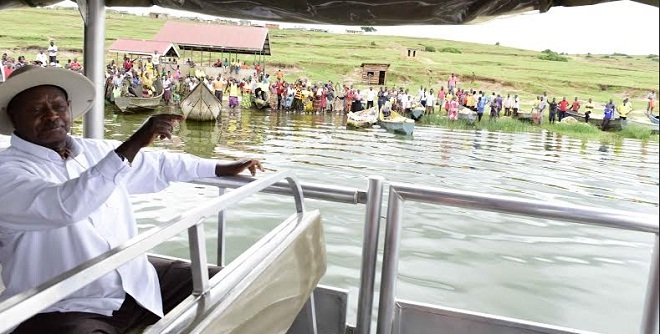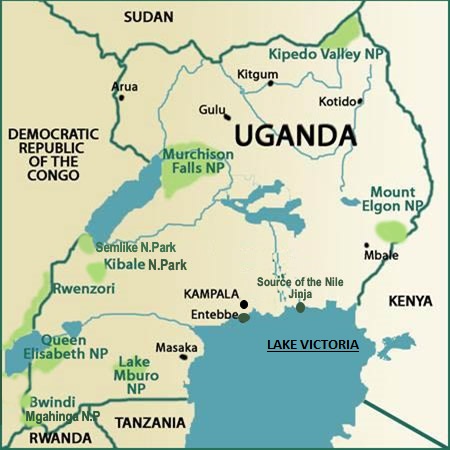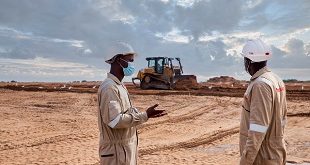
Kampala, Uganda | THE INDEPENDENT | Although world over marine transport is considered one of the most comfortable means of transport, in Uganda it is a different story with discomfort and poor mechanical conditions of the vessels which has contributed to accidents and losing of lives.
The Saturday evening boat accident on Lake Victoria where over 30 died has since resurrected the debate on water safety in Uganda questioning whether the stakeholders have played their part.
A number incidents have been occurring on different lake including L. Albert, L Kyoga, L. Bunyonyi and L. Victoria among others living many people dead. From the Saturday’s accident alone 33 people have so far been confirmed dead and the toll is expected to increase since the search for bodies is still ongoing.
Banabas Twinomujuni, officer at maritime administration in the ministry of works and Transport, says most of the marine accidents are due to the poor mechanical and physical conditions of the vessels.
Twinomujuni says that according to the Vessels Registration Act 1904, every vessel involved in navigation in any waters of Uganda is expected to undergo registration and licensing. However, to his dismay, a few operators have adhered to the regulations.
Statistics from the maritime administration department in the Ministry of Works and Transport indicates that only 170 boats of the estimated over 20,000 transporting people are registered.
“Actually all those who have unregistered boats should be arrested and prosecuted but we are not law enforcers. We have always encouraged them to register but only a handful have adhered.”
According to the November 13th communication to all leaders and security operatives in Wakiso and Kampala districts, the maritime department administration undertook a mandatory vessel inspection and licensing in all landing sites and sailing clubs within the areas.
However, all operators of the sailing clubs including KK beach where the ill-fated K Palm marine vessel was, Entebbe, Munyonyo and waterfront sailing clubs refused their marine vessels to be inspected.
Two days after the failed inspection at KK beach, one of the marine vessels stationed at the beach capsized with more than 100 people feared on board.

Twinomujuni says, well as ordinary people at the different landing sites have accepted to inspect, register and license their boats, the private operators with larger marine vessels have constantly refused.
Every marine operator on a water body in Uganda is expected to subject his vessel to an annual inspection, registration and licensing to ensure safety and security which later ends with the awarding of a sea worthy certificate.
The registration entails the identification of the owner of the vessel, captain, manufacturer and the mechanical and physical conditions among others.
Novat Mukaajanga Baliremwa, a marine officer under the ministry of works and transport, says beside the registration and licensing, it high time government made a number of strides in developing marine transport to ensure safety.
Baliremwa, shares that currently navigating around several is also a challenge as the survey charts used were designed way back 1900 by the colonial masters. He adds that since then, a lot of geographical changes have occurred and this are not represented anywhere on the available charts.
He says that even many areas have changed names and if one is to use the chart might fail to reach the desired destination.
He also wonders why several operators are given licenses to operate a marine vessel but instead use the vessels for tasks they aren’t authorized for.
Baliremwa advises that for the small boats like canoes which are widely used, plimsoll line which show the limit of legal submersion when loaded with cargo under various sea conditions should be marked to control over loading which is the most cause of accidents on water.
He says there is also a need to place navigation guiding beacons and a coordinated distress operating center for rapid response and rescue in case of any anomaly on a water body.
Eng Tony Kavuma Bafiilawala, the assistance commissioner in charge of the Maritime Department, says government has embarked on resurveying water bodies in the country so as to mark the dangerous spots.
“A project is ongoing in the department to have such water bodies resurveyed to ensure safe navigation by both big and small marine vessels.” Eng Bafiilawala told URN in an interview, although he declined to divulge more information regarding the process.
Moses Kalanzi, a water safety expert under Swim Safe Uganda says government should not only concentrate on the provision of safe water vessels but also equip people with basic skills of survival in case of any accident on water.
******
URN
 The Independent Uganda: You get the Truth we Pay the Price
The Independent Uganda: You get the Truth we Pay the Price


